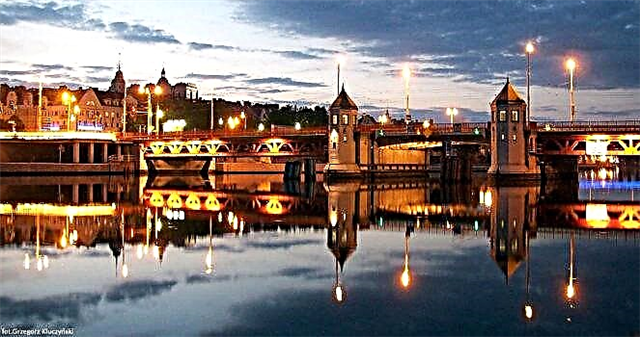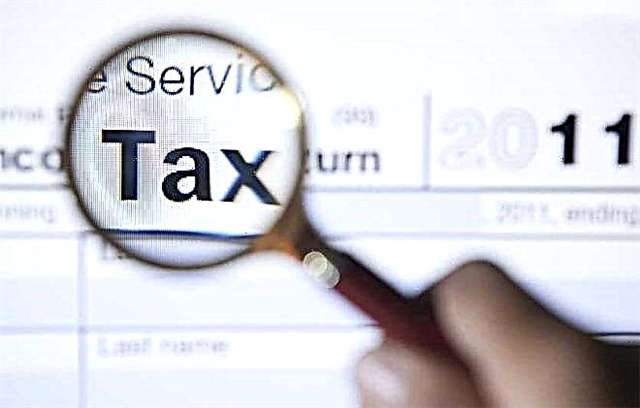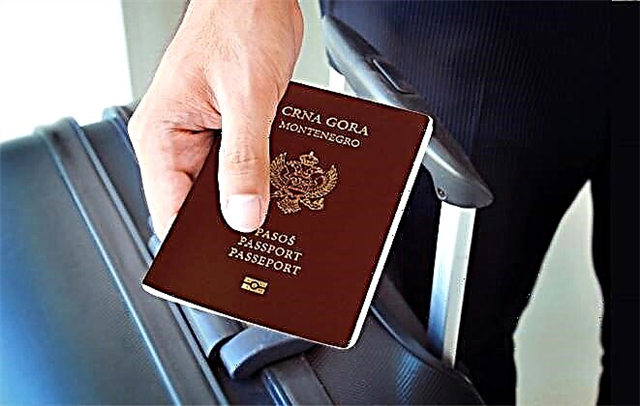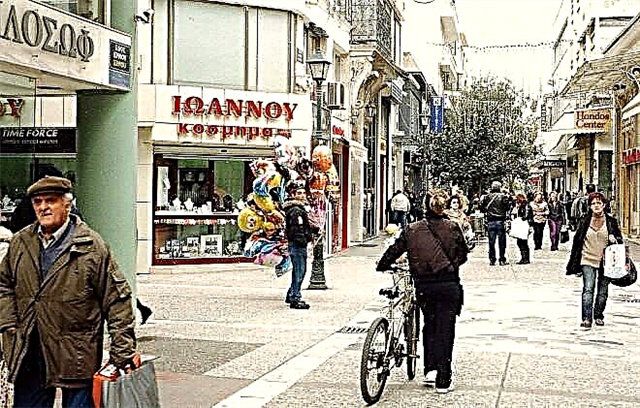Greece is one of the countries where you want to return. Shrouded in a halo of ancient history, sunny and hospitable, it attracts not only tourists, but also those who dream of living on the seashore, admiring unsurpassed landscapes and feeling part of the European community. But the life in Greece of a tourist and a migrant is two sides of the same coin.

The state of the Greek economy
Problems in the state's economy began in 2001, when Greece joined the Eurozone. From that moment on, the Greek authorities provided falsified data on the financial situation, showing a budget deficit of 3%, which made it possible to receive cash loans at low interest rates. The truthful data was released only in 2009.
All this happened against the backdrop of the raging global economic crisis (2007), which led to the following events:
- in April 2021, the Greek government officially asked for EU support to prevent bankruptcy;
- The European Union provided three packages of loans - in 2021, 2021, 2021 - in exchange for austerity rates, a decrease in the public sector and budget cuts;
- in 2021, the country was on the brink of default.
At the end of 2021, Prime Minister Alexis Tsipras announced that the country had successfully withdrawn from the program of assistance from creditors and that the economy in Greece was heading for a new model. According to the budget adopted for 2021, the new macroeconomic scenario should bring economic growth to 2.5% (in 2021 it was 2.1%) and a decrease in unemployment to 16.7% (in August 2021 - 18.9%).
The government has budgeted for a reduction in taxes on real estate, insurance premiums for private entrepreneurs and farmers, and a reduction in income tax for legal entities from 29 to 25%.
Life in Greece
Holidays in Greece are chosen by both representatives of wealthy circles of society and ordinary tourists. And although for a trip here you will have to plan a larger budget than to the same Turkey, there are more and more people who want to visit local resorts every year.
Given the difficult economic situation, the authorities primarily care about citizens, and therefore it will not be easy for foreign immigrants to settle in the country.
The standard of living in Greece today remains lower than in Europe. Over the past decade, the situation of local residents has deteriorated significantly, and there are certain difficulties in finding a job.
Work and wages
The country's economy is formed by two leading areas - tourism and agriculture. Despite the crisis and the decline in citizens' incomes, the local population is still reluctant to take on "dirty" work, leaving all unskilled occupations to visitors.
Employees are required for:
- collecting olives;
- picking citrus fruits;
- care of animals on farms.
There are no special requirements for candidates for these vacancies, and therefore you can get a job even without knowing the language. For those wishing to work in the tourism sector, work in Greece is available for all 12 months. Especially in demand are women who are ready to clean hotels, villas, apartments.
The amount of wages today is poor. The staff of villas and hotels can count on 350-700 euros per month. The work of programmers is appreciated above all. They can receive from 2000 euros. But in order to find such a job, you need to have a higher education, experience, speak English and Greek, overcome the competition with the Greeks.
Social security of citizens
The state provides the main types of assistance to pensioners, the unemployed and the disabled. There are no plans to cut these payments in 2021. In exchange, the government had to abandon other social measures:
- expanding the school feeding program;
- the opening of new kindergartens and nurseries;
- subsidizing rental housing for the poor;
- investments in primary infrastructure and energy networks;
- expanding the employment of local residents;
- subsidizing prescription drugs.
Before the crisis, the size of the pension of the Greeks was at least 85% of the salary. Today, this payment does not exceed 50% of earnings (approximately 360 euros).
Poor retirees can receive additional assistance until 2021. The government intends to increase the minimum pension threshold to 375 euros by 2021 (it is also the minimum subsistence level).
Material assistance to foreigners moving to the country is not provided today.
Medical services
The Greek healthcare system is in its infancy. Compared with other European countries, we can say that its level is quite low.
A key feature of the provision of medical care is the uneven distribution of the population across the country. This has led to the overcrowding of hospitals in Athens and Thessaloniki and a shortage of doctors in the countryside.

The country has 128 hospitals, 160 health centers, hundreds of municipal clinics. Some hotels, in addition to recreation, offer treatment services for certain diseases.
All medical institutions are divided into public and private. In the first, you can get help for free if you have insurance. The cost of the services of the latter is most often extremely high and does not correspond to the standard of living in the country. In some private centers, a doctor's consultation costs about 50-80 euros (without diagnostics).
A clean environment, not polluted by nuclear power plants and industrial production, contributes to the fact that the average life expectancy in Greece is 81 years for women and 76 years for men.
Education
Education of the younger generation in the country is carried out in several stages:
- Kindergarten;
- Primary School;
- secondary school (lyceums and gymnasiums);
- university.
University studies are optional. But Greek universities are very popular due to the high quality of the knowledge provided. In total, there are 18 higher educational institutions and 14 technical higher schools in the country.
The education system in Greece provides some concessions for foreigners. For example, university enrollment is based on the average graduation score. The main requirement is knowledge of the Greek language.
Until the end of the bachelor's degree, students are provided with free textbooks, housing, meals, and receive benefits for travel on public transport, communication services and visits to attractions.
Crime level
Before the crisis, life on Greek territory was in no way associated with concepts such as crime and crime. The situation was changed by the country's accession to the EU, a difficult financial situation and an influx of illegal migrants. Whether it is safe in Greece now depends on which relocation site you choose.
In large cities - Thessaloniki and Athens - unemployment was the most manifested, and against its background the crime rate increased. In almost every locality, rallies against government policies are regularly held.
At the same time, this does not affect the lives of vacationers.
As in any other resort region, you need to be careful not to fall into the hands of scammers who trade on the beaches, in places where tourists gather. It is also worth remembering that Greece borders on Turkey, from where the main flow of refugees comes. And although the authorities keep this issue under control, it will still not be superfluous to know where the refugee camps are located: the islands of Chios and Lesvos, the port of Piraeus, the border with Macedonia.
It is necessary to take into account the situation with refugees for the reason that after the signing by Ankara and Brussels of an agreement on the expulsion of migrants back to Turkish territory, they began to leave the camps, creating riots in nearby cities.
Climatic conditions and weather
Greece is located in the southern part of the Balkans, consists of the mainland and numerous islands. In the east, the state is washed by the Thracian and Aegean seas, in the south - by the Cretan and Mediterranean, in the west - by the Ionian. Vacationers on the island of Crete can swim in the Libyan and Cretan seas.
The Greek territory is characterized by three types of climate: Mediterranean, temperate and Alpine.
The greatest amount of precipitation falls in January. The temperature in the south drops to + 11-18 degrees Celsius, in the north - to 3-9 degrees above zero.
The gardens begin to bloom as early as March. In April, everything is fragrant and blooming, but swimming in the sea is still cool - the water temperature reaches only +15 degrees Celsius.
Lovers of a mild climate come to Greece in May, when the heat is not yet strong, but the sea has already warmed up for swimming, or in September, when the heat is declining.
In October, it is better to choose more southern points of the country for visits, and even better to go to Crete or Rhodes. November in Greece is wet and cold, while December is characterized by strong winds and frequent rain.
How much does life in Greece cost?
To estimate what budget will be needed to cover the basic living expenses, a brief overview of the basic compulsory payments will allow. It should be remembered that the cost of living in Greece today is very different from what it was before the crisis. In addition, the salaries of employees of the companies have undergone serious cuts. Agricultural workers, the creative professions and the manufacturing sector have suffered greatly.

At the same time, citizens' expenses on utility bills, travel in transport and insurance remained at the same level: they have to allocate about a third of their income to pay utility bills, and another 15-25% - for food.
Payment for housing
Greeks prefer small houses or apartments. As for real estate prices, you can buy a villa here for 3500 euros per 1 square meter. Those who are interested in living in a Greek city will have to prepare at least 1,800 euros per square meter for the purchase of an apartment.
The authorities in every possible way contribute to the inflow of investments into the country: foreigners who are ready to buy housing in the amount of 250 thousand euros or more are ready to provide permanent residence, and after a certain period of residence on its basis - citizenship. An important innovation in 2021 is the reduction of the tax burden on owners of small real estate by up to 30%.
As for the rental of apartments, a one-room apartment will cost 200-250 euros per month. In Athens, rents can be up to 300-500 euros. To this amount you need to add the required utility bills:
| Housing size | The amount of bills for electricity, water supply, garbage collection (in euros for 1 month) |
|---|---|
| 1-room apartment or studio | 80-100 |
| 2-room apartment 45-65 sq. m | from 120 |
| 3-room apartment 65-85 sq. m | from 145 |
In addition, you will have to pay: Internet - 20-30 euros, mobile communications - about 0.27 cents per minute.
Food basket
Food prices in Greece are the next thing to consider when planning your budget. The cost of basic goods is approximately as follows:
| Name | Price in EUR |
|---|---|
| Sugar (1 kg) | 1 |
| Bread | from 0.8 |
| Fresh fish 1 kg | from 10 |
| Milk 1 liter | 1- 1,5 |
| Coffee 500 g | 7 |
| Imported beer 0.5 l | 4 |
| Chicken fillet 1 kg | from 5 |
| Water 0.5 l | from 0.40 |
| Juice | about 1.20 |
| Melon | 1 |
| Apples | from 1 |
| Strawberry | 3.5 |
| Cucumbers | 1 |
| Potato | from 0.70 |
A family of three will have to set aside approximately 16% of their income for food. Visitors, as a rule, have lunch and dinner in local cafes, which is most often explained by the desire to get acquainted with the national cuisine. A trip to a restaurant above the average level can cost 40-45 euros for two.
Away from the resort areas, you can have a good meal for only 15 euros. For example, a chicken or pork dish can cost 8-15 euros, and a meat and eggplant snack can cost from 4 euros.
The way people live in Greece is largely driven by the need to save money. In supermarkets, for example, you can often get on promotional offers, and it is better to buy local seasonal vegetables and fruits in the market on certain days of the week.
Transport
In Greece, every second resident owns a car. That is, there are 500 cars for every thousand people. This is despite the fact that fuel prices are higher here than in some other European countries - about 1.5 euros per 1 liter.
Many Greeks prefer to use public transport - buses, trains, taxis. Car rental is in great demand in resort areas. A small car with insurance will cost 20-25 euros per day.
The prices in euros for the use of transport are as follows:
- One way city bus travel - 1.4;
- Monthly pass - 30;
- Taxi ride:
- Landing - 3.4;
- every kilometer - 0.80;
- waiting hour - 10.85.
Traditions and peculiarities of mentality
The mentality of the Greek nation is formed according to the canons of the Orthodox Church and is conditioned by climatic conditions. It is well known that the Greeks are in no hurry. Many guests of the state have the impression that they do not even work. In fact, they are just trying to hide from the hot sun, and therefore they leave everything for the morning and evening.
Siesta in Greece is as sacred as resting at night. If it occurs to you to break the silence at this time of day, be sure that the police will come to you.
The attitude of the Greeks to the Russians, in fact, as to other nations, is due to the hot southern hospitality, which was extolled back in Ancient Hellas. Children are also treated in a special way; the Greeks include young people up to 21 years of age.
Families are large and friendly, and relations with parents are warm and trusting. Greeks are very sociable people. Sometimes they seem to be interested in everything from a neighbor's new wife to a sale at a nearby store.
The way Greeks treat Russians is largely due to the latter's ability to pay. But when it comes to a foreigner who has managed to find a high-paying job in the country, coldness may be shown to him, since he took a position for which a local resident could apply.
Russian diaspora
To understand how our compatriots live here, it is recommended to make a short visit first. To do this, you will have to obtain a Schengen visa to enter the mainland of the country or enter one of the islands (Lesvos, Chios, Rhodes, Samos, Kos, Symi, Kastelorizon) through Turkey, having issued an excursion and an island visa.

The term “Russians in Greece” refers to the entire Russian-speaking population who came here from the former Soviet republics. The resettlement began at the beginning of the 20th century. Today the number of immigrants reaches 400 thousand people, of which almost 14 thousand have emigrated from the Russian Federation.
The main places of settlement for Russian migrants are Thessaloniki and Athens. Although you can hear familiar speech in small settlements. Mostly ethnic Greeks or those who have married a local come here.
The Russian diaspora in Greece promotes Russian culture and language, opens schools and kindergartens, publishes magazines and newspapers.
Where is the best place to settle
Where is the best place to live in Greece depends on what you intend to do in this country and what you expect from the move. Briefly about the peculiarities of life in different regions:
- Big cities. Choose Athens or Thessaloniki for those who want to be closer to their own. It is also easier to find a job here, to put children in school and enroll in Greek language courses (such centers have closed in small towns). It should be borne in mind that the Greeks are very fond of holding meetings and striking. Transport workers do this more often than others, and therefore you cannot do without your own car.
- Life in the provinces. It flows more calmly here, and the residents themselves are less concerned about the events and problems in the country. There is also lower crime (everyone knows each other) and fewer job opportunities. Most of the work will have to be done on farms and in agricultural companies.
- Islands.Many believe that the best places in Greece to live are the islands. There are about 6 thousand of them here, only 227 are inhabited. They are distinguished by a cleaner ecology due to the absence of a large number of cars. For example, on the island of Hydra, vehicles are generally prohibited.
The main activity of the islanders is agriculture. It ensures that there are always fresh vegetables, fruits and fish in stores. Young people consider life here boring and hopeless, and the working-age population has difficulties with crossing to the mainland, especially in winter.
Outcomes
As a conclusion, here are the pros and cons of living in Greece:
| Advantages | disadvantages |
|---|---|
| clean ecology, mild climate, almost 300 sunny days a year; | unstable economy; |
| the opportunity to choose for life the more lively mainland of the country or a calm island; | high rates of unemployment; |
| a course towards improving the economic situation and favorable forecasts; | difficulties with employment; |
| low rent for housing; | frequent strikes; |
| inexpensive food; | difficulties in interacting with government services; |
| the opportunity to get permanent residence for the purchase of real estate; | the country's unwillingness to accept migrants; |
| observance of family values; | lack of material support for those who came to permanent residence; |
| the ability to organize a variety of leisure activities in large cities. | increased level of crime; |
| the lag in the level of medicine and education from other EU countries; | |
| weak support for the social sphere. |











